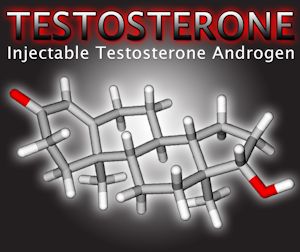Introduction
Impotence, clinically known as erectile dysfunction (ED), is a prevalent concern among American males, affecting millions across various age groups. While lifestyle factors such as diet, exercise, and psychological stress are commonly discussed in relation to ED, the role of genetics is often overlooked. This article delves into the genetic underpinnings that may predispose some men to impotence, offering insights into a less-explored dimension of male health.
The Genetic Basis of Impotence
Recent scientific research has begun to illuminate the genetic factors contributing to ED. Studies have identified specific gene variants that may increase the risk of developing impotence. For instance, polymorphisms in the endothelial nitric oxide synthase (eNOS) gene have been linked to ED, as nitric oxide is crucial for achieving and maintaining an erection. Similarly, variations in the angiotensin-converting enzyme (ACE) gene, which plays a role in blood pressure regulation, have been associated with an increased risk of ED.
Genetic Predisposition and Hormonal Imbalance
Hormonal imbalances, particularly those involving testosterone, are another genetic factor that can influence the likelihood of developing ED. Genetic variations affecting the androgen receptor gene can alter testosterone's effectiveness, potentially leading to impotence. Moreover, mutations in genes responsible for the synthesis and metabolism of testosterone can disrupt normal hormonal levels, further increasing the risk of ED.
The Interplay of Genetics and Lifestyle
While genetics can predispose individuals to ED, it is essential to recognize the interplay between genetic factors and lifestyle choices. For example, a genetic predisposition to cardiovascular disease, which is a known risk factor for ED, can be exacerbated by poor diet and lack of physical activity. Therefore, understanding one's genetic makeup can empower men to make informed lifestyle choices that mitigate their risk of developing impotence.
Advancements in Genetic Testing and Personalized Medicine
The advent of genetic testing has opened new avenues for personalized medicine, allowing for the identification of individuals at higher risk for ED. By analyzing an individual's genetic profile, healthcare providers can tailor preventive strategies and treatments to address specific genetic vulnerabilities. This approach not only enhances the effectiveness of interventions but also promotes a proactive stance on male health.
Challenges and Future Directions
Despite the promising insights provided by genetic research, several challenges remain. The complexity of genetic interactions and the influence of environmental factors make it difficult to predict ED risk with absolute certainty. Future research must focus on elucidating these interactions and developing more comprehensive genetic risk models. Additionally, increasing public awareness about the genetic aspects of ED can help destigmatize the condition and encourage more men to seek genetic counseling and testing.
Conclusion
In conclusion, while lifestyle and psychological factors are significant contributors to impotence, the role of genetics cannot be understated. American males with a genetic predisposition to ED can benefit from understanding their risk and taking proactive steps to manage it. As genetic research continues to evolve, it holds the promise of revolutionizing the approach to impotence, offering hope for more effective prevention and treatment strategies tailored to individual genetic profiles.
Contact Us Today For A Free Consultation

- Innovations in Impotence Treatment: A New Era for American Males' Sexual Health [Last Updated On: February 23rd, 2025] [Originally Added On: February 23rd, 2025]
- Dissecting the Hushed Truth: Comprehensive Grasp on the Facets of Impotence [Last Updated On: February 25th, 2025] [Originally Added On: February 25th, 2025]
- Unveiling the Frontiers of Male Sexual Health: Advanced Therapies for Erectile Dysfunction [Last Updated On: February 26th, 2025] [Originally Added On: February 26th, 2025]
- Unveiling Masculine Strength: Finding the Path from Powerless to Potent [Last Updated On: February 26th, 2025] [Originally Added On: February 26th, 2025]
- Unveiling Silent Torment: Navigating the Path of Impotence [Last Updated On: February 27th, 2025] [Originally Added On: February 27th, 2025]
- Understanding Impotence: A Deep Dive into the Science of Desire [Last Updated On: February 28th, 2025] [Originally Added On: February 28th, 2025]
- Subverting Traditions: Reinventing Masculinity Beyond the Shadow of Impotence [Last Updated On: February 28th, 2025] [Originally Added On: February 28th, 2025]
- Disentangling Misconceptions and Unveiling the Truth about Erectile Dysfunction [Last Updated On: March 1st, 2025] [Originally Added On: March 1st, 2025]
- Revolutionizing Impotence Management: A Deep Dive into Alternative Therapies for American Males [Last Updated On: March 1st, 2025] [Originally Added On: March 1st, 2025]
- The Undeniable Link: Sexuality and Men's Mental Health [Last Updated On: March 2nd, 2025] [Originally Added On: March 2nd, 2025]
- Understanding Erectile Dysfunction: Causes, Stigma, and Advanced Treatment Options [Last Updated On: March 3rd, 2025] [Originally Added On: March 3rd, 2025]
- Linking Erectile Dysfunction to Cardiovascular Health Risks [Last Updated On: March 4th, 2025] [Originally Added On: March 4th, 2025]
- Understanding Testosterone's Role in Male Sexual Health and Impotence Management [Last Updated On: March 5th, 2025] [Originally Added On: March 5th, 2025]
- Exploring the Impact of Stress and Anxiety on Erectile Dysfunction in Men [Last Updated On: March 6th, 2025] [Originally Added On: March 6th, 2025]
- Understanding and Addressing Erectile Dysfunction's Impact on Relationships: A Comprehensive Guide [Last Updated On: March 7th, 2025] [Originally Added On: March 7th, 2025]
- Comprehensive Guide to Male Impotence: Causes, Treatments, and Success Stories [Last Updated On: March 8th, 2025] [Originally Added On: March 8th, 2025]
- Impotence: Psychological, Relational, and Medical Insights for Men and Partners [Last Updated On: March 9th, 2025] [Originally Added On: March 9th, 2025]
- Understanding and Overcoming Impotence: A Comprehensive Guide for American Males [Last Updated On: March 12th, 2025] [Originally Added On: March 12th, 2025]
- Revitalizing Masculine Vigor: A Comprehensive Guide to Overcoming Impotence Through Lifestyle Changes [Last Updated On: March 13th, 2025] [Originally Added On: March 13th, 2025]
- Navigating Emotional Recovery: The Impact of Counseling on Impotence in American Men [Last Updated On: March 15th, 2025] [Originally Added On: March 15th, 2025]
- Understanding and Overcoming Impotence: A Guide to Rebuilding Intimacy and Sexual Health [Last Updated On: March 17th, 2025] [Originally Added On: March 17th, 2025]
- Impotence and Aging: Understanding and Managing ED in American Males [Last Updated On: March 18th, 2025] [Originally Added On: March 18th, 2025]
- Impotence in American Males: Diagnosis, Treatment, and Emotional Support Strategies [Last Updated On: March 18th, 2025] [Originally Added On: March 18th, 2025]
- Impotence to Triumph: Men's Stories of Overcoming Erectile Dysfunction [Last Updated On: March 18th, 2025] [Originally Added On: March 18th, 2025]
- Understanding Impotence: Causes, Treatments, and Importance of Male Sexual Health [Last Updated On: March 18th, 2025] [Originally Added On: March 18th, 2025]
- Impotence: Economic and Emotional Impacts on American Men's Well-being [Last Updated On: March 19th, 2025] [Originally Added On: March 19th, 2025]
- Impotence: Understanding, Treating, and Overcoming Stigma in American Men [Last Updated On: March 19th, 2025] [Originally Added On: March 19th, 2025]
- Telemedicine Revolutionizes Impotence Care for American Men: Benefits, Challenges, and Future [Last Updated On: March 19th, 2025] [Originally Added On: March 19th, 2025]
- Medication-Induced Impotence: Causes, Mechanisms, and Solutions for American Men [Last Updated On: March 20th, 2025] [Originally Added On: March 20th, 2025]
- Harnessing Positivity to Combat Impotence: A Mental Health Perspective [Last Updated On: March 21st, 2025] [Originally Added On: March 21st, 2025]
- Natural Aphrodisiacs: Exploring Their Role in Managing Impotence in American Men [Last Updated On: March 21st, 2025] [Originally Added On: March 21st, 2025]
- Restorative Sleep: A Key to Enhancing Sexual Health in American Men [Last Updated On: March 22nd, 2025] [Originally Added On: March 22nd, 2025]
- Diabetes and Erectile Dysfunction: Prevalence, Mechanisms, and Management Strategies in American Men [Last Updated On: March 22nd, 2025] [Originally Added On: March 22nd, 2025]
- Overcoming Impotence: Understanding Causes, Treatments, and Emotional Impact [Last Updated On: March 22nd, 2025] [Originally Added On: March 22nd, 2025]
- Global Cultural Perspectives on Impotence and Sexual Health: A Comprehensive Overview [Last Updated On: March 23rd, 2025] [Originally Added On: March 23rd, 2025]
- Strategies for American Men to Overcome Impotence and Enhance Seduction [Last Updated On: March 23rd, 2025] [Originally Added On: March 23rd, 2025]
- Innovative Gadgets and Techniques Revolutionizing ED Treatment [Last Updated On: March 23rd, 2025] [Originally Added On: March 23rd, 2025]
- Psychological Approaches to Combat Impotence in American Men: Mind-Body Connection [Last Updated On: March 23rd, 2025] [Originally Added On: March 23rd, 2025]
- Impotence in American Men: Understanding, Overcoming, and Redefining Sexual Health [Last Updated On: March 23rd, 2025] [Originally Added On: March 23rd, 2025]
- Work Stress and Impotence: Understanding and Managing the Connection in American Men [Last Updated On: March 24th, 2025] [Originally Added On: March 24th, 2025]
- From Ancient Remedies to Modern Advances: Treating Impotence in American Men [Last Updated On: March 24th, 2025] [Originally Added On: March 24th, 2025]
- Impotence and Endocrine Disorders: Insights and Guidance for American Men [Last Updated On: March 24th, 2025] [Originally Added On: March 24th, 2025]
- Navigating Insurance Coverage for Impotence: A Comprehensive Guide for American Males [Last Updated On: March 24th, 2025] [Originally Added On: March 24th, 2025]
- Obesity, Diet, and Impotence: A Comprehensive Guide for American Males [Last Updated On: March 24th, 2025] [Originally Added On: March 24th, 2025]
- Lifestyle Choices Impacting Male Sexual Health: Diet, Exercise, and More [Last Updated On: March 24th, 2025] [Originally Added On: March 24th, 2025]
- Erectile Dysfunction: Causes, Emerging Research, and Innovative Treatments in the U.S. [Last Updated On: March 25th, 2025] [Originally Added On: March 25th, 2025]
- Impotence in American Males: Understanding Impacts and Pathways to Renewed Intimacy [Last Updated On: March 25th, 2025] [Originally Added On: March 25th, 2025]
- Counseling Strategies to Rebuild Self-Esteem in Men with Impotence [Last Updated On: March 25th, 2025] [Originally Added On: March 25th, 2025]
- Breaking the Taboo: Understanding and Addressing Erectile Dysfunction in American Men [Last Updated On: March 25th, 2025] [Originally Added On: March 25th, 2025]
- PDE5 Inhibitors: Revolutionizing ED Treatment and Enhancing Quality of Life [Last Updated On: March 25th, 2025] [Originally Added On: March 25th, 2025]
- Navigating the Emotional Impact of Impotence: Strategies for American Men [Last Updated On: March 25th, 2025] [Originally Added On: March 25th, 2025]
- Exercise: A Vital Strategy for Managing Impotence in American Males [Last Updated On: March 25th, 2025] [Originally Added On: March 25th, 2025]
- Debunking Impotence Myths: Understanding and Treating Erectile Dysfunction in American Men [Last Updated On: March 26th, 2025] [Originally Added On: March 26th, 2025]
- Acupuncture as a Complementary Treatment for Impotence in American Males [Last Updated On: March 26th, 2025] [Originally Added On: March 26th, 2025]
- Exploring Injection and Device Therapies for Impotence: Beyond Oral Medications [Last Updated On: March 26th, 2025] [Originally Added On: March 26th, 2025]
- Understanding Impotence: Anatomy, Causes, and Effective Management Strategies [Last Updated On: March 26th, 2025] [Originally Added On: March 26th, 2025]
- Physical Therapy Enhances Sexual Health, Treats Impotence in American Males [Last Updated On: March 26th, 2025] [Originally Added On: March 26th, 2025]
- Impotence: Unveiling Emotional, Financial Burdens and Seeking Solutions for American Men [Last Updated On: March 26th, 2025] [Originally Added On: March 26th, 2025]
- Supporting Partners Through Impotence: A Guide to Understanding and Recovery [Last Updated On: March 27th, 2025] [Originally Added On: March 27th, 2025]
- Essential Nutrients for Combating Impotence in American Men [Last Updated On: March 27th, 2025] [Originally Added On: March 27th, 2025]
- Overcoming Impotence: A Holistic Approach to Men's Sexual Wellness [Last Updated On: March 27th, 2025] [Originally Added On: March 27th, 2025]
- Exploring Secondary Causes of Impotence Beyond Medication in American Males [Last Updated On: March 28th, 2025] [Originally Added On: March 28th, 2025]
- Smoking, Alcohol, and Impotence: Impacts and Strategies for American Men [Last Updated On: March 28th, 2025] [Originally Added On: March 28th, 2025]
- Impotence: Navigating Psychological Impacts and Enhancing Intimate Relationships in American Males [Last Updated On: March 29th, 2025] [Originally Added On: March 29th, 2025]
- Chronic Stress and Impotence: Understanding Links and Managing Effects [Last Updated On: March 29th, 2025] [Originally Added On: March 29th, 2025]
- Understanding Impotence: Biochemical, Hormonal, and Psychological Factors in American Males [Last Updated On: March 29th, 2025] [Originally Added On: March 29th, 2025]
- Mindfulness and Meditation: Effective Strategies for Managing Impotence in American Men [Last Updated On: March 29th, 2025] [Originally Added On: March 29th, 2025]
- Overcoming Impotence: American Men's Journeys to Sexual Health and Confidence [Last Updated On: March 30th, 2025] [Originally Added On: March 30th, 2025]
- Impotence, Depression, and Anxiety: Integrated Treatment Approaches for American Men [Last Updated On: March 30th, 2025] [Originally Added On: March 30th, 2025]
- Impotence: Redefining Masculinity and Addressing Social Impact in America [Last Updated On: March 31st, 2025] [Originally Added On: March 31st, 2025]
- Innovative Technologies Revolutionizing Erectile Dysfunction Treatment and Management [Last Updated On: March 31st, 2025] [Originally Added On: March 31st, 2025]
- Prostate Health and Impotence: A Comprehensive Guide for American Men [Last Updated On: April 2nd, 2025] [Originally Added On: April 2nd, 2025]
- Impotence: Understanding ED's Impact on Relationships and Masculinity in American Men [Last Updated On: April 2nd, 2025] [Originally Added On: April 2nd, 2025]
- Future of Impotence Treatment: Innovations and Personalized Approaches [Last Updated On: April 3rd, 2025] [Originally Added On: April 3rd, 2025]
- Surgical Options for Impotence: Types, Procedures, and Recovery Insights [Last Updated On: April 3rd, 2025] [Originally Added On: April 3rd, 2025]
- Environmental Toxins and Male Impotence: Understanding Risks and Mitigation Strategies [Last Updated On: April 6th, 2025] [Originally Added On: April 6th, 2025]
- Breaking the Silence: Strategies for American Men to Discuss Impotence [Last Updated On: April 8th, 2025] [Originally Added On: April 8th, 2025]
- Lifestyle Hacks to Combat Impotence in American Men: Diet, Exercise, and More [Last Updated On: April 8th, 2025] [Originally Added On: April 8th, 2025]
- Innovative Drug Therapies Revolutionizing Impotence Treatment in American Men [Last Updated On: April 9th, 2025] [Originally Added On: April 9th, 2025]
- Holistic Self-Care Strategies for American Men to Overcome Impotence [Last Updated On: April 9th, 2025] [Originally Added On: April 9th, 2025]
Word Count: 500




















